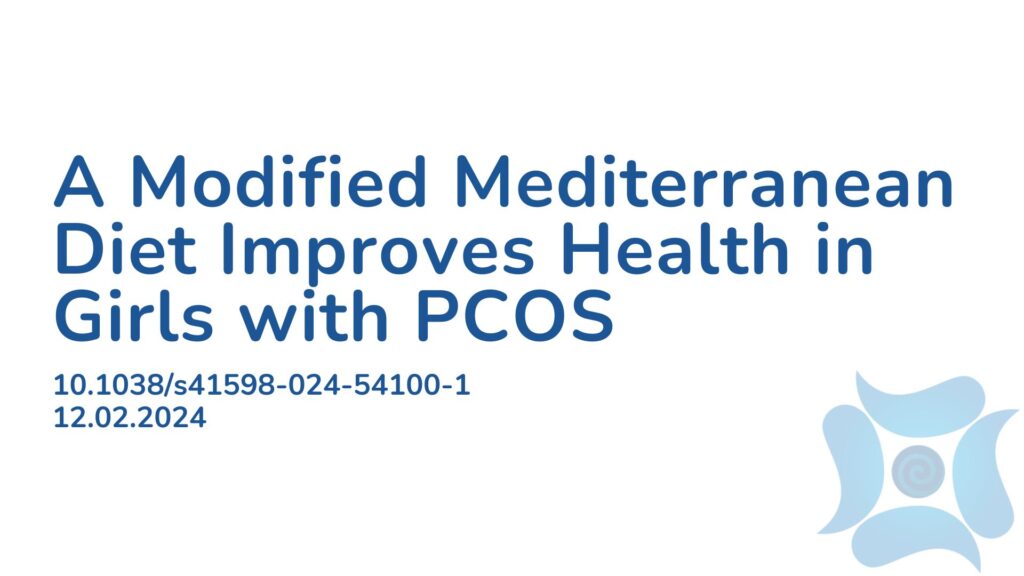Summary:
Polycystic Ovary Syndrome (PCOS) presents with metabolic dysfunctions, impacting fertility and health. Lifestyle interventions, such as diet and exercise, are recommended, but the most effective dietary approach remains unclear. Currently, the Mediterranean Diet (MD), rich in antioxidants and anti-inflammatory nutrients, has shown the most promise. This study aimed to assess the effects of a 12-week MD-based dietary intervention but without the implementation of energy restrictions (named the AIDiet), on metabolic and inflammatory parameters in girls with PCOS. It hypothesized that the intervention will improve diet quality and metabolic-inflammatory markers. The research involved two groups of girls diagnosed with PCOS, categorized as either slim (group N) or overweight-to-obese (group Ov/Ob). Thirteen participants from the Ov/Ob group and nineteen from the N group completed the study. A notable improvement in their daily diet quality score was observed. Additionally, the diet led to significant improvements in total antioxidant capacity, fasting insulin levels, and markers for insulin resistance in the Ov/Ob group. Both groups experienced reductions in inflammatory markers. The results therefore concluded that the AIDiet intervention effectively enhanced dietary quality and positively impacted hormonal and immuno-metabolic markers, and that these improvements were evidence in normal-weight patients as well, independent of weight loss.
Abstract:
This study was conducted in two groups of girls with PCOS (polycystic ovary syndrome) categorized as slim (group N) and overweight-to-obese (group Ov/Ob). The study’s primary outcome was to assess the impact of a 12-week anti-inflammatory diet (AIDiet) intervention, without energy deficit, on daily diet quality improvement, evaluated according to the KIDMED index. The secondary outcome was improving inflammatory, redox, hormonal, and metabolic statuses. In the study, which was completed by 13 girls from the Ov/Ob group and 19 girls from the N group, a significant improvement in the mean KIDMED score was obtained. Moreover, the intervention significantly improves concentration of total antioxidant capacity (TAC), fasting insulin, and the homeostatic model assessment for insulin resistance (HOMA-IR) index, in the Ov/Ob group, while both groups experienced a reduction in the concentration of interleukin (IL)-1 and IL-6, tumour necrosis factor (TNF-α), and androstenedione. The AIDiet intervention effectively improved the quality of the subjects’ diets, which was associated with the improvement of hormonal and immuno-metabolic markers. However, these changes in normal-weight patients were observed regardless of body weight reduction. ClinicalTrials.gov Identifier NCT04738409.
Article Publication Date: 12.02.2024
DOI: 10.1038/s41598-024-54100-1



